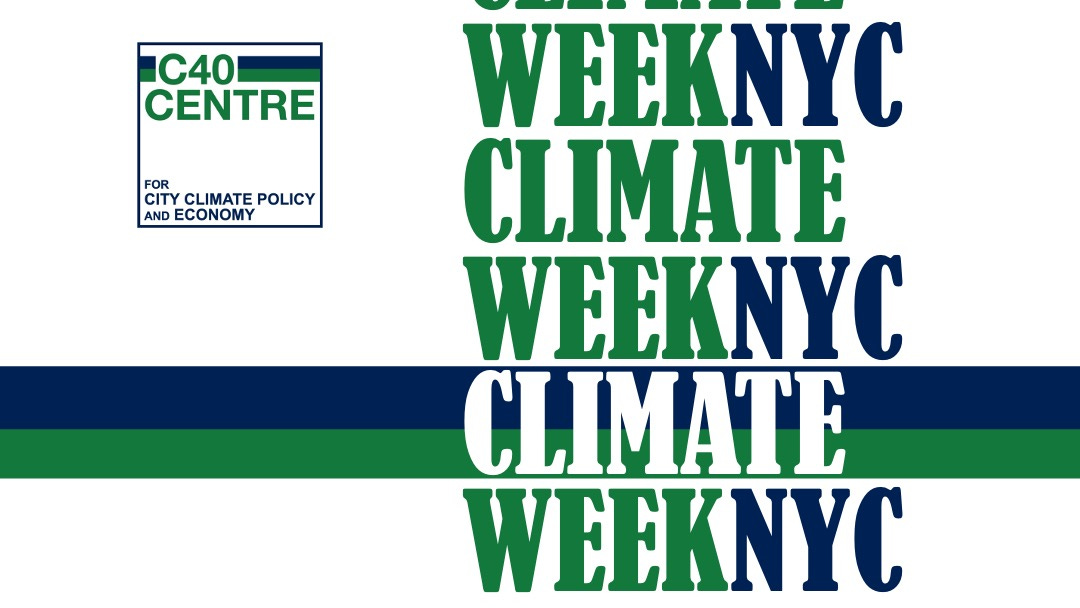Deep concern and some hope
Notes from New York Climate Week
I’m just back from New York climate week—the annual event that coincides with the UN general assembly—where advocates, businesses, prime ministers and mayors who care about climate traditionally mingle. I attended and spoke at numerous events: from those organized by large multinational corporations like Mastercard, to those organized by academic institutions like Harvard, to those organized by the UN itself.
My key takeaway? Even those businesses who understand the scale of the climate challenge and are trying to act don’t seem to understand or appreciate the urgency of action. Science tells us that we need to halve global emissions by 2030 if we are to avoid irreversible damage, but nearly all of the conversation was about 2050 targets and long-range actions. Worryingly, this means the situation hasn’t changed much from what we wrote in our newsletter about New York climate week, this time last year:
I asked one business leader concerned about both clean construction and zero emissions operations why commercial and multi-unit residential building owners weren’t moving quickly enough to do the energy retrofits that will be paid back in 7-10 years, and his reply was revealing: “It’s totally wrong from a climate perspective, but they want their capital paid back in 3 years. That’s unfortunately how things work. We need to fix capitalism.” Now you are talking…
The bright spot was the presence of Mayors—C40 Co-chairs Sadiq Khan and Yvonne Aki-Sawyer were everywhere. Mayor Khan appeared on MSNBC and had a strong presence in US media about a variety of issues, including denouncing the spread of far-right ideology. Colleagues like Chicago Mayor Brandon Johnson, whose city is suing the fossil fuel industry, spoke strongly about actions cities are already taking to combat climate change and build more socially just, inclusive and resilient communities. Cities’ actions are still the main source of hope for the world to avoid climate breakdown—although there were intriguing developments at the UN’s summit of the future.
Many are justly worried about the future of multilateralism, particularly given the incredibly slow progress of climate negotiations and its inability to stop wars in Ukraine, Gaza, and now Lebanon. But the Summit of the Future did produce at least one notable outcome—the Global Declaration on future Generations. While it might sound dry, the idea of thinking about future generations as a cross departmental requirement in government can profoundly change public policy. From a Canadian perspective, it builds strongly on indigenous traditions—important to us as we celebrate the fourth National Day of Truth and Reconciliation.
The principles behind the Global Declaration on future Generations have already been formally recognised in Wales, which is the home of the first Well-being of Future Generations (2015) Act and the first future generations commissioner, Sophie Howe. I spoke to Ms Howe in the first episode of the new season of of the Cities 1.5 podcast and learnt about her experience in this novel and necessary position. One of the key decisions resulting from this law was the intervention of Ms Howe to ensure public funds were spent on public transit, not widening roads. During our interview, Ms Howe made it clear that the legislation forced Wales to do things differently. Is it too much to hope that by next year climate conscious business leaders will do the same?
Until next time,
📚 What are we reading?
: Local by Alastair Humphreys. A great account of how to have microadventures or go on micro-trips no matter where you are. Featuring a lot of pylons. The author lives in a refreshingly boring and therefore all the more relatable part of England. I found the descriptions of his dreich outings shockingly mesmerizing.
: Monsters: A Fan's Dilemma by Claire Dederer. The question at the heart of this book is, what do we do with the art of great artists who turn out to be monsters – like serial sexual abuses? Claire Dederer’s exploration of this complex issue, and our own flaws as human beings, is fascinating.
: I’ve probably spent too much time looking at the maps in this Nature Cities paper on how 10,000 cities around the world have implemented, and could implement, 15-minute city principles. The paper appears to focus on urban design and density, but entirely disregards residents’ behaviour, which is why my hometown of Rome ranks moderately well despite being rather car-centric. You can explore the 10,000 cities in question with this interactive online tool.
🎧 Cities 1.5 Season 4 Launch
What can we do today that our future selves will thank us for? In the season 4 opener of Cities 1.5, David Miller, Managing Director of the C40 Centre for Urban Climate Policy and Economy, interviews Sophie Howe, the world's first Future Generations Commissioner for Wales, UK.
They discuss how Wales has implemented policies to promote healthy lives on a healthy planet for both current and future generations. The Welsh government’s work inspired the Declaration of the Future, adopted by global leaders at The Summit of the Future during New York City Climate Week.






